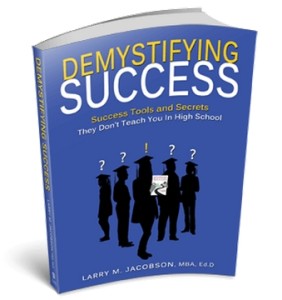A lot of my blog readers have been reaching out to me and asking me to further explain my definition of “emotional parasites.” They ask me how they can identify who these potentially disruptive people are. The more important question they should be asking is how and why they are so harmful to one’s success.
How does one identify and protect oneself from these so-called predators? Like colds or viruses, people tend to attract these types of “parasites” (e.g. emotional vampires) when their self-esteem or emotional guards are down. Like a magnet, we tend to attract those individuals that seem more than willing to aid in our self-loathing rather than challenge us to get out of our own way. The boggled and debauched, as I liked to call them, are unhealthy, dysfunctional people that often intentionally or unknowingly manipulate or use others for their own personal entertainment or distraction. These people tend to deflect their own negative self-worth rather than deal with their own self-sabotaging issues. They often pretend to be concerned or supportive of an unsuspecting victim’s uncertain or negative circumstance, but, in reality, they silently gain satisfaction and enjoyment by disclaiming and intentionally diminishing the success, spirit or character of their unsuspecting target.
To make matters worse, these emotional parasites will even go as far as making their victims feel guilty, and even responsible for their needs, playing on their guilt or misguided loyalties. I cannot begin to tell you how emotionally debilitating these cowardly people can be. They rarely own their own crap. They rarely apologize when wrong, and most importantly, they rarely respect YOUR needs, goals or requests unless it somehow benefits their own short-term purposes.
“When you say ‘yes’ to others, make sure you are not saying ‘no’ to yourself.” ~ Paulo Coehlo
Like anything important in your life, you always need to weigh the pros and cons. This especially holds true regarding the people you choose to include in your life. As I said earlier, the emotional parasites often tend to strike when you are most susceptible so I want to share three different scenarios that I have experienced that may make you more aware in the future:
1. The Bait and Switch – Unfortunately, there are individuals you will come across that have become master manipulators. They study you and learn very quickly how to make you feel comfortable in their presence. They often tell you what you want to hear, pretend to like the things you like, or worse, create a false sense of security so that you take their bait. The only problem is…their actions are not sustainable over time because they are not being authentic to who they are. They are simply trying to get you to befriend them or, even worse, fall in love with them. NEWS FLASH: These manipulators have an agenda! So, you need to put their words on mute and study their actions. If you ask them questions and they become defensive, clearly you have unearthed a chink in their deceptive armor. If this uncomfortable moment occurs, do not apologize; just continue to trust your instincts, keep your eyes open and be aware of any future inconsistencies.
2. Dismissive of needs – Recently, I witnessed a good friend of mine who reached out to a group of so-called friends requesting space and time to re-collect his thoughts while going through his tunnel of transformation. In the past, my friend had hit some tough times and these same so-called friends gleefully cheered him on by supporting his bad decisions and choices simply because it fueled their own unfulfilled needs. Yet, when my friend finally figured out that his choices were no longer productive in helping him find his success, he decided once again to reach out to these same so-called friends for support and understanding. Lo and behold, some actually became irate and dismissive with him because he changed his mind about how he had been leading his life—the same life they had been cheering him on with because it fulfilled their needs, not his.
3. Defensiveness (yeah, but you did this…) The last red flag that I would like to bring to your attention is a parasite’s failure to apologize. Have you ever noticed when you call someone out on something you did not like, rather than receiving a simple apology from that person, you get a defensive response? It is almost like they are pissed off that you called them out on their agenda. In any healthy relationship, there are going to be times when you intentionally or unintentionally do something that upsets or hurts the other person. At this time, the correct response is to own and acknowledge your actions and not use it as yet another opportunity to point out an additional flaw or weakness because someone made you feel uncomfortable.
At the end of the day, an emotional parasite is simply projecting their fears. A successful person learns to manage their fears, as well as their relationships.

As I share in my books, Demystifying Success: Success Tools and Secrets They Don’t Teach You in High School and Demystifying College Success: 45 Tips to Skyrocket Your Success from College and Beyond!, there are several reasons why successful people learn how to protect and cultivate healthy relationships and, at the same time, navigate around unhealthy people in order to achieve their desired outcomes.
I am hoping that the information and clarification I have provided in this post will allow you to recognize the warning signs early so that you can continue to grow your success.
